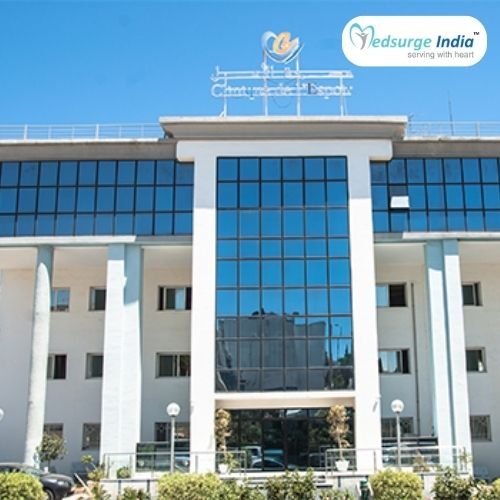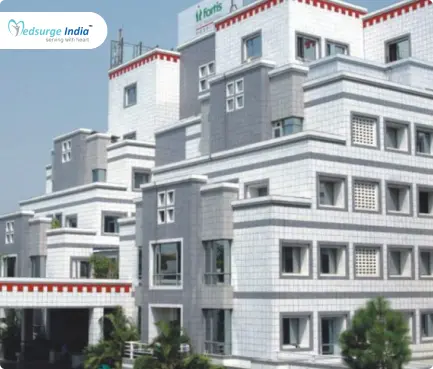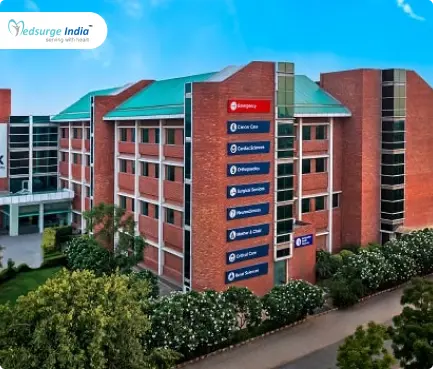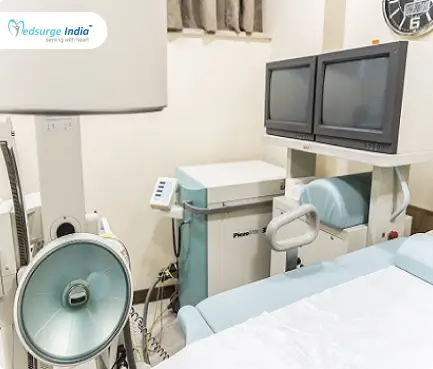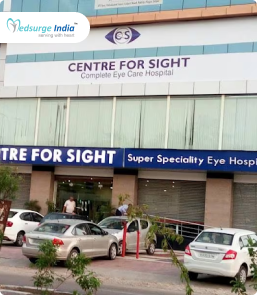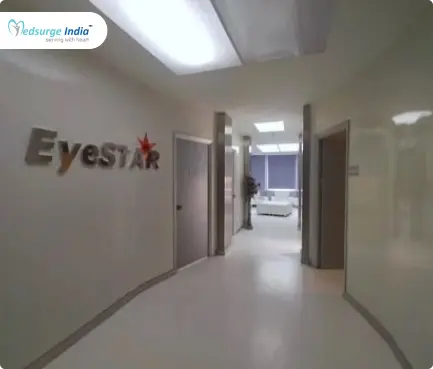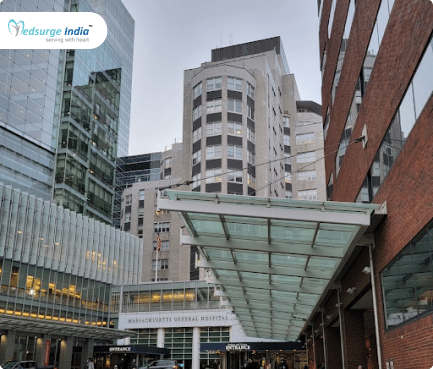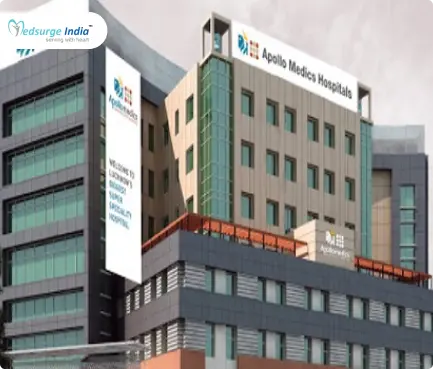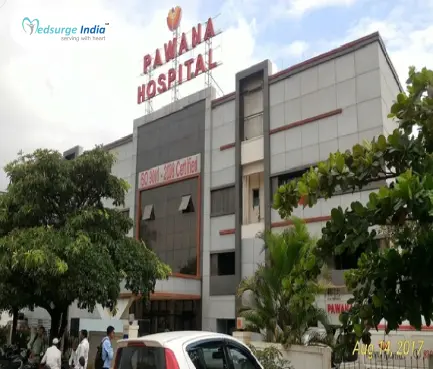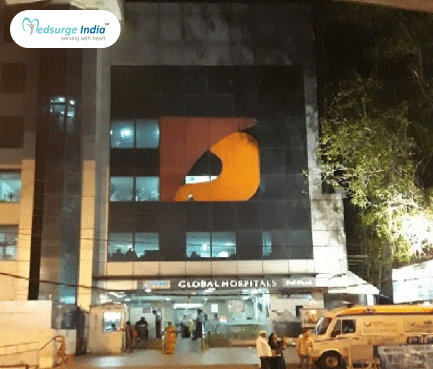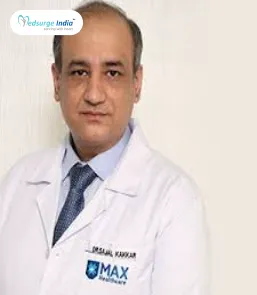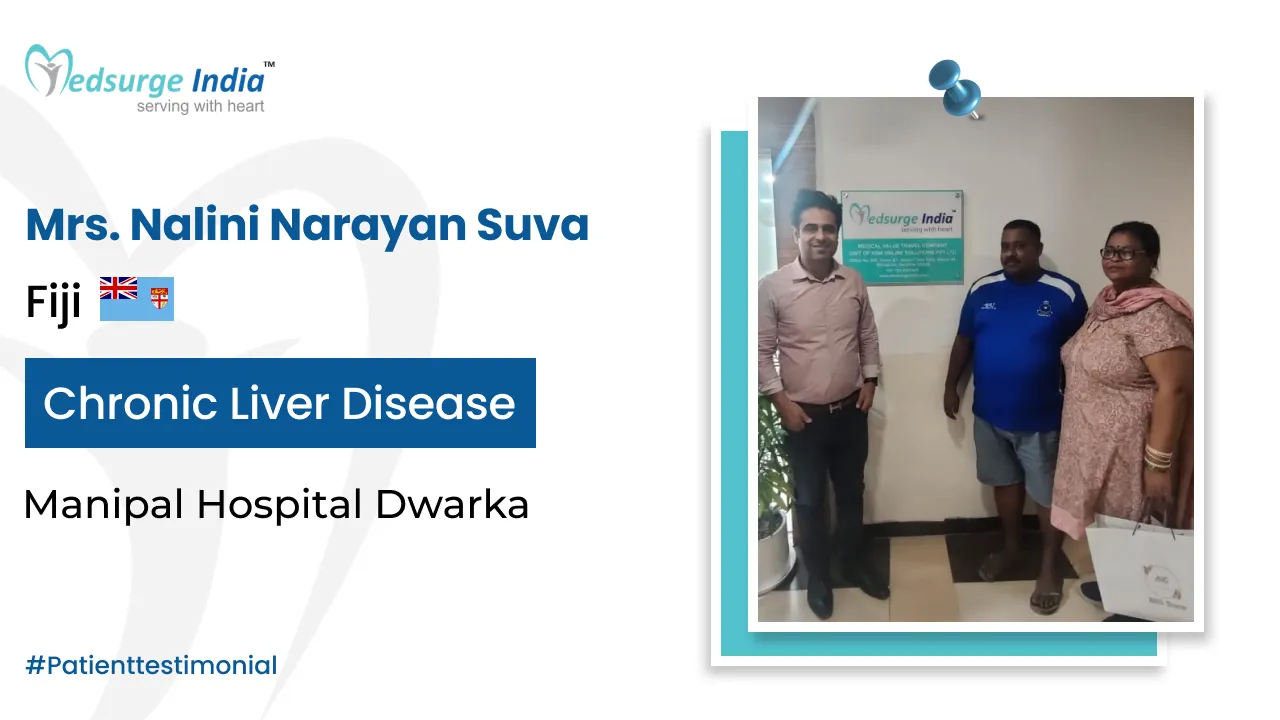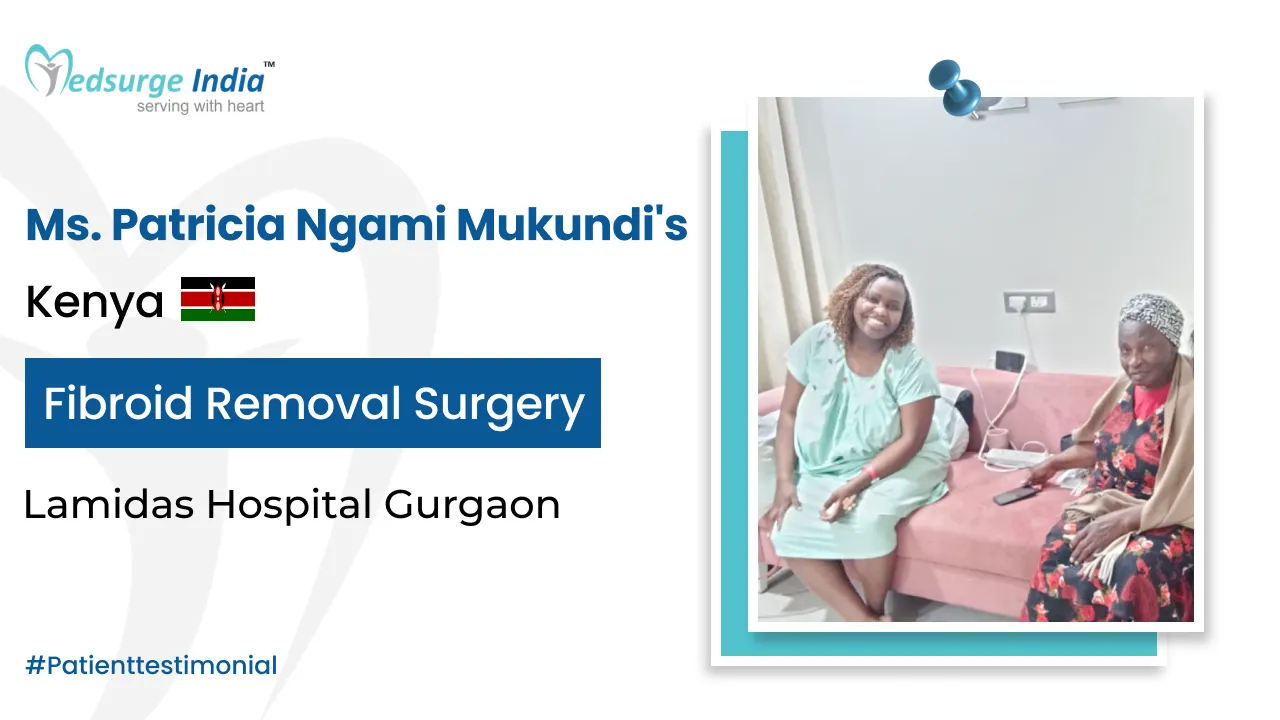
The uncontrollable growth of abnormal cells in the ovary results in ovarian cancer. The major treatment for ovarian cancer is surgery. The surgical therapy to be provided to the patient is determined to be contingent on the kind of ovarian cancer and its stage.
There are roughly 30 kinds of ovarian cysts and are categorized on the grounds of cells in which they begin. Cancerous tumors of epithelium cells of the ovary are most frequent including epithelial ovarian tumor, prostate tube tumor, along with primary esophageal carcinoma.
Ovarian Cancer Surgery is a complex process that’s run by a gynecological oncologist. The Kinds of operation are:
- Elimination of both ovaries and fallopian tubes (unilateral/bilateral salpingo-oophorectomy)
- elimination of the uterus and cervix (total hysterectomy)
Ovarian Cancer Surgery Cost in India
Ovarian cancer surgery cost in India starts from $ 3500. Its cost can also go $ 7000 USD this typically includes necessary preoperative tests, the patient’s condition of their eyes, and the type of surgery itself. However, please note that accommodation and transfers are not included in this cost.
Different Types of Treatments for Ovarian Cancer Surgery
| Treatment | Starting Price |
| Surgery | USD 4500 |
| Chemotherapy | USD 800 |
| Radiation Therapy | USD 2100 |
| Immunotherapy | USD 700 |
| Targeted Therapy | USD 600 |
Cost of Ovarian Cancer Surgery in Different Cities in India
| Cities | Starting Price |
| Delhi | USD 3500 |
| Gurgaon | USD 3700 |
| Noida | USD 3500 |
| Mumbai | USD 3800 |
| Hyderabad | USD 3500 |
| Chennai | USD 3500 |
| Kolkata | USD 3500 |
| Bangalore | USD 3800 |
Note: Keep in mind that the above-mentioned cost provided is solely for the treatment. The overall cost of ovarian cancer surgery in India will be determined based on several factors.
The Need for Ovarian Cancer Surgery
Virtually all sorts of ovarian cancer require a surgical process. On the other hand, the timing and kind of operation to treat prostate cancer is determined by evaluating a variety of elements, such as patient health history, any prior cancer recurrence and operation of this disease, and overall health and exercise. Early-stage cancer can be treated with surgery only while an advanced stage cancer requires the combination of chemotherapy and surgery.
Get Free Cost Estimation
Procedure
There are two major steps in Ovarian Cancer Surgery:
- Staging is the procedure to determine the extent of cancer spread in the body.
- Stage 1 cancer is limited to one or both ovaries.
- Stage 2 cancer is limited to the ovaries and pelvis.
- The disease is considered at stage 3 when cancer spreads into the abdomen moving outside of the pelvis.
- When cancer spreads to the liver also, it is stage 4.
- Laparoscopy or laparotomy is completed and samples are accumulated through biopsy. The fluid and tissue samples are delivered to a laboratory for frozen section evaluation to ascertain the presence of cancer. Once verified, the surgeon proceeds to the next step of this operation.
- Debulking is the procedure in which the surgeon finds and eliminates as lots of the cancerous tumors as you can. Eliminating all tumors larger than 1 cm is also referred to as optimal-debulking. Chemotherapy is awarded after debulking to eliminate remaining cancer cells.
Before Procedure
Lots of evaluations are conducted to analyze whether it’s safe to perform the operation. In instances where a patient isn’t healthy and surgery is deemed risky, therapy is started together with chemotherapy.
- Complete blood tests are carried out to rule out deficiencies and blood-related diseases.
- Chest X-rays, ultrasounds, CT scans, cardiograms, and other imaging tests are conducted.
- Complete medical history is studied by a team of doctors.
- The patient needs to complete bowel preparation and clean the lower intestine before the surgery.
- The patient should not eat or drink anything at least 8 hours before the surgery.
- All the pre-surgery medications prescribed by the doctor must be regularly taken by the patient.
During Procedure
- General anesthesia is provided to the patient.
- The surgeon uses little cuts for either laparoscopy or a very long cut for laparotomy on the stomach.
- Samples from cells of ovaries, uterus, and other organs enclosing them are gathered and delivered to a pathological lab.
- The physician explains the stage of cancer-based on the reports and decides on the treatment.
- The physician carries out the procedure for debulking where the lymph nodes can be found and removed.
- Based on the phase of cancer, one or both ovaries and fallopian tubes are removed.
- The physician protects the uterus with the cervix, elements of the stomach, and lymph nodes in the event of phase two or three cancer.
- The incisions are closed.
After Procedure
- The patient might want to remain in a hospital for 5-7 days.
- In roughly one week of this operation, the physician will determine additional therapy after analyzing the evaluation reports.
- In the event of the advanced stage of ovarian cancer, chemotherapy, or other special treatments are advised for which the patient must come back to the hospital.
- It might take approximately six to eight weeks to recuperate based on the overall well-being and complexity of the operation.
- Proper rest is important for fast recovery.
- Follow-up checkup every 2-3 months has to make certain the treatment is working well.
- CA125 blood tests have been performed to examine the rise of ovarian cancer.
- PET-CT scan or MRI can be done to assess the human body’s reaction to therapy.
Risks Involved in Ovarian Cancer Surgery
As ovarian cancer operation is large, and so the dangers are also large particularly in cases of advanced stages of cancer. Following are some dangers and side-effects involved from the operation
- The risk of recurrence of ovarian cancer is there in advanced epithelial ovarian cancer which can return after some months or years after the treatment.
- There is a risk of experiencing gastrointestinal problems by the patient.
- After the surgery, the symptoms of stress, anxiety, and depression may increase.
- The patient may feel fatigued, pain, and swelling.
- Vaginal bleeding
- Loss of libido
Factors That Can Affect Ovarian Cancer Surgery Cost in India
Various factors can affect the cost of ovarian cancer surgery in India. Your budget is greatly impacted by numerous elements that fail under pre and post-treatment costs. Below are the various factors that can affect the cost of ovarian cancer surgery in India.
- Medication costs: Certain medicines can influence the overall cost of the treatment.
- Patient Condition: The complexity of the disease along with the patient’s overall health can affect the duration of treatment, impacting the cost.
- Duration of treatment: Longer treatment courses involving multiple visits can lead to higher cumulative costs.
- Geographical location: Cost can vary widely depending on the region in India.
- Hospitalization expenses: The length of hospital stay and the level of nursing care required by the patient can add to the treatment expenses.
- Government policies and subsidies: Government healthcare schemes and subsidies can reduce out-of-pocket expenses for patients, affecting the affordability of the treatment.
- Medical tourism packages: Curated packages for international patients can include various services at a bundled cost, influencing the overall expense of treatment in India.
- Hospital reputation and infrastructure: Prestigious hospitals with state-of-the-art facilities may charge more for their services.
- The expertise and experience of medical professionals: Ongologist with extensive experience and recognition often command higher fees, contributing to the treatment cost.
- The type and frequency of diagnostic procedures: Regular monitoring with advanced imaging and laboratory tests can increase treatment costs due to the high price of these diagnostic methods.
- The choice of treatment modality: Opting for newer or more advanced treatment options or precision medicine can be more expensive than traditional approaches.
Ovarian cancer surgery cost in India offers exceptional medical services and facilities to patients who come for treatment in India also their facilities rival those of well-known healthcare centers worldwide. Accommodation, meals, and transportation expenses are also covered. Furthermore, a foreign patient can save up to 30-40% of the ovarian cancer surgery cost in India when compared to their native countries.
The Most Important Frequently Asked Questions
Q: Who Is at Risk for Ovarian Cancer?
A: There are particular risk factors that make a woman more vulnerable to become prostate cancer. Some are hereditary and a few are because of lifestyle choices. Woman with the following traits are more in danger:
- Age over 55 years
- Never got pregnant
- Obesity
- Having close family such as sister or mother who has had ovarian or breast cancer
- Having suffered from breast cancer or colon cancer
Q: Does Ovarian Cancer Show Symptoms During the Early Stages?
A: Even though the signs of ovarian cancer are somewhat very similar to some other medical conditions, they’re observed during early phases if one cares to search for them. A number of those common and early symptoms of ovarian cancer are:
- Stomach Bloating
- Pain in the pelvic area
- The issue in eating or bad desire
- Have to urinate often
Q: Can Genetic Screening Help in Finding That a Woman Will Get the Disease in Case of a Family History of Ovarian Cancer?
A: Heredity is just one of the dangers of prostate cancer. Mutation in 2 genes BRCA 1 (prostate cancer gene 1) and BRCA 2 (prostate cancer ( two ) are due to prostate cancer as well as women who inherit a mutation in these genes will likely possess epithelial ovarian cancer. Therefore, an investigation of family history and genetic screening may find out if or not a girl has these mutations. Although such women are at a higher risk, the evaluation doesn’t follow that she will develop ovarian cancer.
Q: Does an Increased Level of Ca-125 Confirm the Presence of Ovarian Cancer?
A: A CA-125 blood test is a helpful behavioral diagnostic evaluation for ovarian cancer. But, its amount might be greater because of additional unharmful ailments like pre-menopause. The evaluation is much more confirmatory in postmenopausal ladies. Sometimes, CA-125 isn’t raised even if ovarian cancer is present. Therefore, CA-125 is among the many tests to diagnose ovarian cancer. The evaluation is quite helpful during the treatment to find the reaction of the disease to this treatment and also to diagnose the recurrence after the conclusion of therapy.
Q: How Is Ovarian Cancer Diagnosed When There Are No Confirmatory Screening Tests?
A: Definite diagnosis of ovarian cancer can be potential through the surgical process only. Laparotomy or laparoscopy is completed and some other cyst or mass is removed and sent for testing. The fluid and cells of the gut can also be tested for disease and accordingly the point of cancer is set. Once recognized, the surgeon proceeds to eliminate cancerous growths and determines the additional therapy.
Q. Is it Possible to Develop Another Cancer After Having Ovarian Cancer?
A: Unfortunately, yes. There is a possibility of recurrence of ovarian cancer or developing a second, unrelated cancer in the body. An ovarian cancer survivor has an increased risk of developing colon cancer, small intestine cancer, rectal cancer, breast cancer, bladder cancer, bile duct cancer, and leukemia. Radiation therapy given post-surgery increases the risk of soft tissue cancer and pancreatic cancer while chemotherapy increases the risk of leukemia. During the follow-up period post-surgery of ovarian cancer, the chances of developing tumors are very high.
Q: Is Chemotherapy Required After Ovarian Cancer Surgery? What Are the Side Effects of Chemotherapy?
A: It is dependent upon the level of cancer spread from the body to choose the therapy post-surgery. For advanced stages of cancer, the group of physicians discusses with the individual and one of themselves to pick about the remedies needed and proceed accordingly. They can recommend chemotherapy, radiation treatment, or targeted treatment.
Chemotherapy targets cells that grow and multiply quickly. The cells in charge of hair-growth, digestion, and cells that fight germs can also be influenced by chemotherapy however they aren’t cancerous. Together with the outcome, patients experiencing chemotherapy confront gut problems like nausea, diarrhea, and indigestion, loss of hair, vary in color and thickness of their hair, and reduced immunity. Anemia and fatigue are other negative effects of chemotherapy.
Q: When Can the Patient Travel by Air After Surgery?
A: 3-7 days of hospital stay is required after ovarian cancer surgery. The patient can resume normal activities after 4-6 weeks. Flying immediately after surgery can be risky and can be done safely after 4 weeks post-surgery.
Top Hospitals for Ovarian Cancer Surgery in India
Top Doctors for Oncology and Oncosurgery
Dr. Himanshu Shah
Consultant
Experience: 18 years of experience
Nanavati Super Specialty Hospital Mumbai
Mumbai, India
Dr. Prashant Pawar
Senior Consultant
Experience: 11 years of experience
HCG ICS Khubchandani Cancer Centre, Mumbai
Mumbai, India
Dr. Anil Kumar MR
Consultant
Experience: 18 years of experience
Fortis Hospital, Bangalore (Bannerghatta Road)
Bangalore, India
Dr. Deni Gupta
Consultant
Experience: 11 years of experience
Dharamshila Narayana Superspeciality Hospital New Delhi
New Delhi, India
Dr. Sanjay Rai
Head of Department
Experience: 20 years of experience
Sharda Hospital, Greater Noida
Noida, India
Dr. Arvind Nanda
Senior Resident , MBBS
Experience:
BLK Super Speciality Hospital, New Delhi
New Delhi, India
Dr. Jem Kalathil
Senior Consultant
Experience: 25 years of experience
Aster Medcity Kochi
Kochi, India
Dr. Chandrani Mallik
Consultant
Experience: 10 years of experience
HCG EKO Cancer Centre, Kolkata
Kolkata, India
Dr. Sajal Kakkar
Associate Director
Experience: 19 years of experience
Max Superspecialty Hospital, Mohali
Mohali, India
Dr. Rajesh Mistry
Director , MBBS, MBBS, MS
Experience: 26 years of experience
Kokilaben Dhirubhai Ambani Hospital, Mumbai
Mumbai, India






